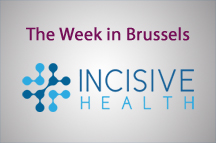 2017 is set to be a turbulent year in European politics. Elections will shake the Governments of Germany, France, the Netherlands and the Czech Republic and negotiations are likely to get tough over Brexit.
2017 is set to be a turbulent year in European politics. Elections will shake the Governments of Germany, France, the Netherlands and the Czech Republic and negotiations are likely to get tough over Brexit.
As the Maltese Government is taking over the EU Presidency, the coming months will also see changes at the top of the European institutions. European Council’s President Donald Tusk’s term is coming to an end in May and following Martin Schulz’s departure in December, MEPs will elect their new President next week. Whoever takes over the Presidency will not only represent the Parliament in all major policy debates but also set the tone of how it negotiates Britian’s upcoming exit from the EU.
So who is in the race for the European Parliament’s top job? Out of the seven candidates, the EPP’s Antonio Tajani, a former EU Commissioner and an EU veteran with over 20 years’ EU policy experience, is currently judged to be the frontrunner. He is closely followed by fellow Italian Gianni Pittella, the Social Democrat candidate for the Presidency, and the Belgian Liberal Democrat candidate Guy Verhofstadt. If the latter is to win, then the Parliament’s stance towards Brexit is likely to get “tough” and “offensive” as declared by Verhofstadt during Wednesday’s Parliamentary election debate.
 Martin Schulz’s departure is also likely to see an end to the European Parliament’s “grand coalition”, as well as to a more unlikely alliance between the EU institutions. Although from different parties, Jean-Claude Juncker and Martin Schulz enjoyed not only a very good working relationship but also a personal friendship, resulting in the European Commission and European Parliament often holding similar positions on policy issues. The outcome of next week’s presidential elections is, therefore, also likely to herald a new relationship between the two major EU institutions.
Martin Schulz’s departure is also likely to see an end to the European Parliament’s “grand coalition”, as well as to a more unlikely alliance between the EU institutions. Although from different parties, Jean-Claude Juncker and Martin Schulz enjoyed not only a very good working relationship but also a personal friendship, resulting in the European Commission and European Parliament often holding similar positions on policy issues. The outcome of next week’s presidential elections is, therefore, also likely to herald a new relationship between the two major EU institutions.
What will it mean for EU health policy? Although Pittella holds a degree in medicine, none of the seven candidates has so far made health policy a focus of their political career. Whilst the Parliament’s Health Committee is only just returning from recess and has yet to formulate its work programme for the coming year, the EU health policy agenda will likely be dominated by the Maltese Presidency’s determination to tackle childhood obesity and enhancing cooperation between Member States’ health systems.
Stephen Mifsud, Maltese Health attaché to the EU, emphasised Malta’s aim to strengthen European cooperation in improving patient access to innovative health technologies in rare diseases – most likely driven through initiatives such as EUnetHTA - as well as enhancing workforce cooperation in highly specialised health service provision. eHealth as a means to drive cross-border exchange of health data will provide the framework for such enhanced cooperation and will be the main topic of the Presidency’s eHealth week in May. This, together with tackling rising levels of HIV across Europe will be amongst the major health policy issues that will keep the European Parliament and its new President busy over the coming weeks and months.














